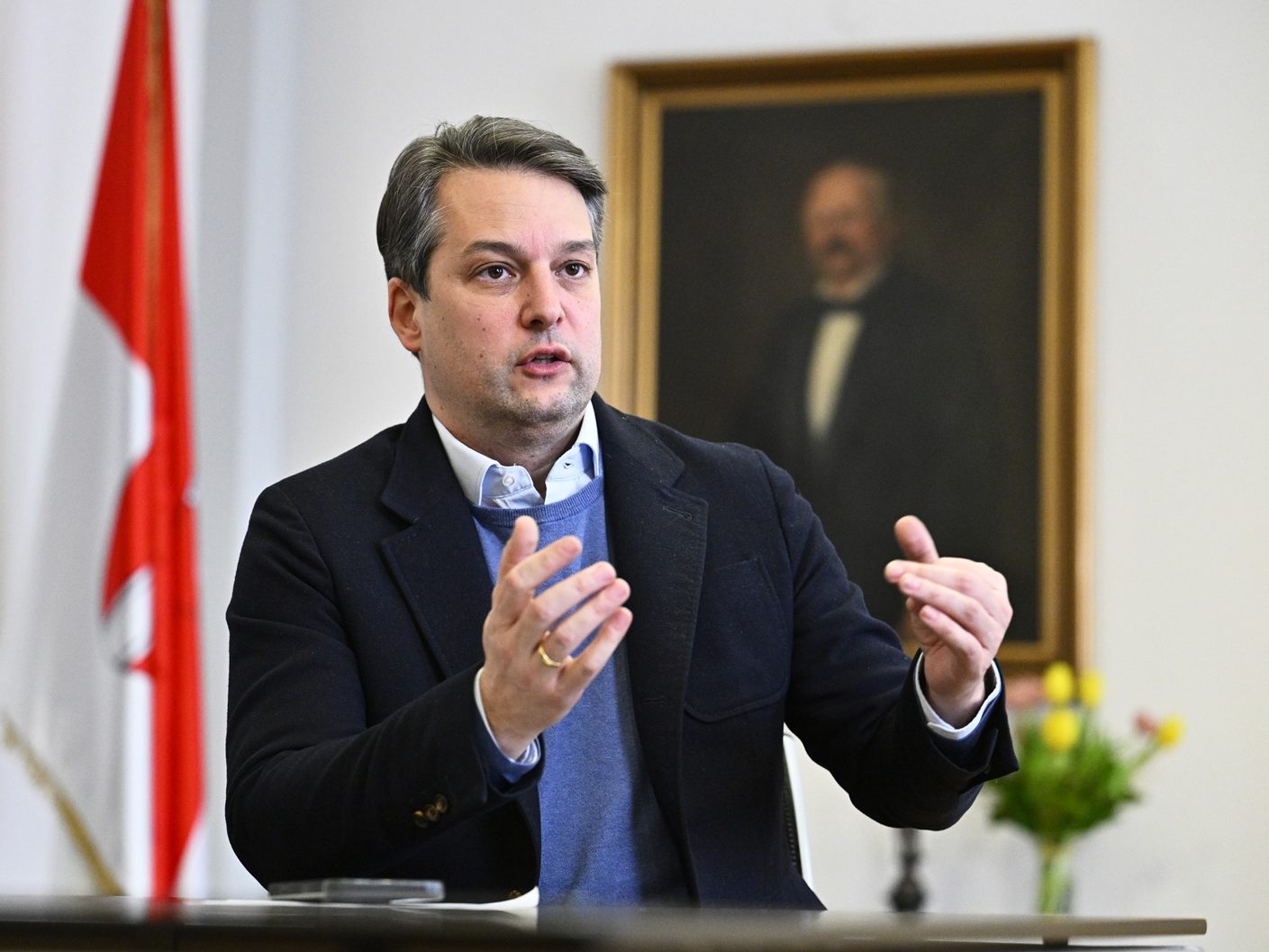Nepp before Vienna Election: "Then Mr. Mahrer is the Wrong One"

Vienna's FPÖ chairman Dominik Nepp is open to negotiations after the election on April 27. "What is important is that we become strong enough to ensure fairness and security in Vienna again and also to advance this issue," he said in an APA interview - "and anyone who wants to negotiate positively with us is a conversation partner for us." He has not set a specific election goal. He merely hopes to become "as strong as possible."
Seven percent in the last Vienna election
In the last election, the Vienna FPÖ plummeted to around seven percent, but current polls predict a tripling in April. Top candidate Nepp is also aware of this. He does not want to commit politically for the time after the election: "Who knows where the journey will go? And it is important to become as strong as possible so that we can also advance our issues in Vienna."
In terms of content, the Vienna FPÖ is entirely on the level of the federal party and chairman Herbert Kickl. "We are only one FPÖ. There is no state FPÖ or a federal FPÖ. And what unites us, among other things, is that Mayor (Michael, note) Ludwig, as the architect of this federal government, is now also responsible for all the pension cuts," Nepp begins his criticism of the current red city leader and sees him pulling the strings in the federal government.
Nepp sees failed asylum policy
Of course, Nepp continues to hold the mayor responsible for alleged grievances in the federal capital, especially stabbings. But the ÖVP-led Ministry of the Interior also contributes by having too few police officers on the streets and police stations having to close at night. Nepp suggests, for example, giving the police a capital city bonus and paying the local executive better, as the service in Vienna is simply "more dangerous."
The FPÖ leader, like the federal party, identifies a failed asylum policy as the cause, but also the city. "And that is, of course, Mayor Ludwig, who attracts people with minimum benefits who do not want to integrate, who do not want to work, who do not learn the German language." This alone amounts to 700 million euros per year. "I say that these 700 million should be taken away from this group again, i.e., linked to citizenship."
Housing and Public Transport
Nepp also wants to link the allocation of municipal housing to citizenship. "And then, of course, you also have to look at the income. So that especially the socially disadvantaged get an affordable, subsidized rent." The mayor has increased rents five times in recent years, and operating costs have also skyrocketed. Nepp, on the other hand, would reset the rent level and other cost drivers in Vienna.
In the area of public transport, the Freedom Party wants to intercept commuter traffic to Vienna right at the city limits, i.e., to build more park-and-ride facilities together with the state of Lower Austria. The subway lines and other public transport should also be extended beyond the state border. But the already expanded bike paths also need to be evaluated, as residents in certain areas can no longer find parking spaces because of them.
"That is a lost vote"
In contrast to the powerful city-SPÖ, Nepp sees little danger from other competitors, such as ÖVP top candidate Karl Mahrer. "So, if I now say Mr. Mahrer should take care of security in Vienna, then Mr. Mahrer is the wrong choice," says the FPÖ politician. The candidacy of Nepp's predecessor in the state party, Heinz-Christian Strache, also does not worry the FPÖ chairman. "I think he is now at one percent. That is a lost vote."
The "mudslinging campaign" by the ÖVP, claiming that the Vienna FPÖ is also campaigning for the Turkish community in the election, surprises Nepp. "We reject that, and our position has remained the same," he says. As a party, they have not advertised in Turkish. There has been no breaking of the fast with him or any other representative of the Vienna FPÖ. "I can only recognize this as an emergency, if I want to interpret it politely, of the ÖVP, because with their indicted top candidate, they are only at 8 to 9 percent."
(APA/Red)
This article has been automatically translated, read the original article here.





